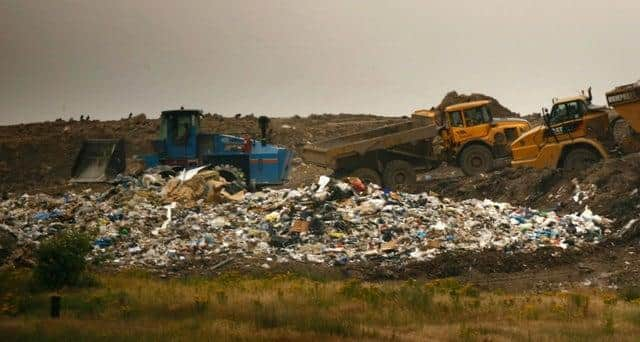No time to waste to reach net zero - Iain Gulland


The Scottish Government’s new campaign, Let’s do Net Zero, is centred on four key behaviours - what we buy, how we travel, what we eat, and how we heat and power our homes. The campaign aims drive awareness of the lifestyle changes we can make to help cut carbon emissions and end the climate crisis. So how can the way you shop save the planet?
The single greatest cause of the climate crisis is the wasteful way we produce, use and discard of materials. This creates around 80 per cent of our nation’s carbon footprint and requires huge quantities of raw materials, which we just don’t have.
Advertisement
Hide AdAdvertisement
Hide AdOur latest research found that the average Scot gets through more than double the maximum amount of materials we need to live well and keep our planet healthy. Each time we buy something new, we’re adding to that waste. So, we need to make what we already have last longer instead and turn Scotland away from a use, waste and dispose economy into a circular economy, where goods and materials are kept in circulation for longer as we reduce, reuse, repair and recycle.
There are important things to consider when making purchases and the Zero Waste Scotland website contains plenty of tips on how to ‘do net zero’ in terms of what we buy.
Top of the list to ask yourself when considering a purchase, is if you need to buy at all. You could borrow instead from family, friends or the growing network of tool libraries lending everything from DIY gadgets to musical instruments. You can also rent common products including everyday clothing, technology and bicycles.
If you do need to buy, switching to second-hand or products that are designed to last, helps. Revolve, our national quality assurance scheme for second-hand stores, gives shoppers a guarantee that the wide range of items and customer service meet high standards. Shopping second-hand doesn’t just help reduce carbon emissions either, it can save you cash and support local businesses and good causes too.
Many people know that single use plastic products and packaging are wasteful and avoid them where possible. However, fewer people realise that all needless, disposable products create unnecessary waste whether they’re made from plastic, plants or anything else. It’s far better for the planet to reuse and repair things instead of ditching something after one use, even if you do recycle it.
We’re already making a difference. The amount of waste going to landfill in Scotland is now at its lowest since records began. But we still have a huge task ahead to eradicate waste and meet our target of reaching net zero by 2045.
As Scotland prepares to host the COP26 global climate crisis talks later this year, there’s no time to waste. Small changes to our shopping habits now can make a big difference to all our futures and the team at Zero Waste Scotland is happy to help with lots of ideas and tips for wasting less.
To find out more about how you can ‘do net zero’ visit: www.netzeronation.scot
Iain Gulland, chief executive, Zero Waste Scotland
Comments
Want to join the conversation? Please or to comment on this article.